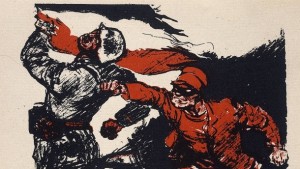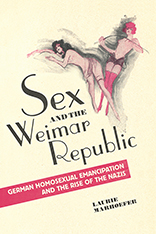 The FAZ and regional broadcaster Bayerischer Rundfunk have teamed up for an essays series on the topic of “Weimarer Verhältnisse?” (Weimar conditions): a group of distinguished historians of the era, including Andreas Wirsching, Ute Daniel and Hélène Miard-Delacroix, consider the reasons for Weimar’s collapse and its lessons for today, from democratic breakdown to economic policy.
The FAZ and regional broadcaster Bayerischer Rundfunk have teamed up for an essays series on the topic of “Weimarer Verhältnisse?” (Weimar conditions): a group of distinguished historians of the era, including Andreas Wirsching, Ute Daniel and Hélène Miard-Delacroix, consider the reasons for Weimar’s collapse and its lessons for today, from democratic breakdown to economic policy.
Welcome to the Weimar Studies Network
The Weimar Studies Network (WSN) is an international platform for researchers and academics working on the history of the Weimar Republic.
It offers information on recent publications, up-coming events and on-going research projects on the politics, culture and society of the interwar years in Germany.
The WSN is open to anybody with an interest in the history of Weimar Germany.- Architecture Art History Berlin Biography Conference Cultural History Economic History Education Exhibition Fashion Foreign Policy Gender General History History of Science History of the Everyday Intellectual History Journal Legal History Literature Media History Military History National Socialism Political History Religious Culture Resource Social History Theatre & Film Transnational History Visual Culture
Blogroll








